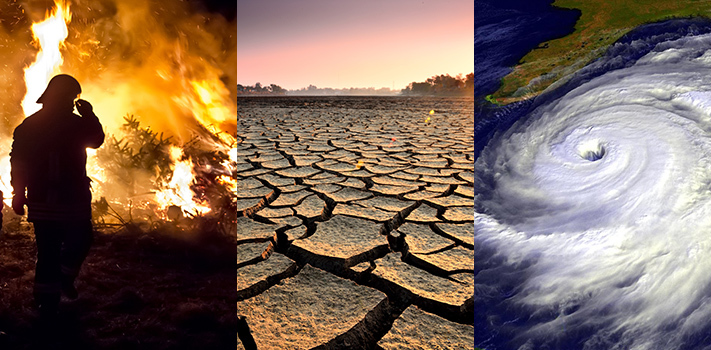Climate change is a global phenomenon that affects all aspects of life, including human health. The changes in the Earth’s climate have already started to impact people’s health, and this impact is likely to intensify in the coming years. As the global temperature continues to rise, the frequency and severity of extreme weather events such as heatwaves, droughts, floods, and storms are increasing. These events can lead to a range of health problems, from heat stress to infectious diseases.
Heat stress is one of the most significant health risks associated with climate change. As temperatures rise, people are more likely to suffer from heat exhaustion and heat stroke. Children, older adults, and people with underlying health conditions are particularly vulnerable to heat stress. In addition to the direct effects of heat, high temperatures can exacerbate existing health conditions such as heart disease, respiratory problems, and diabetes. Heatwaves can also lead to dehydration, which can cause fatigue, headaches, and other health problems.
Another way climate change impacts human health is by increasing the frequency and severity of extreme weather events, such as hurricanes, floods, and droughts. These events can cause physical injuries, displacement, and psychological trauma. Floods, for example, can contaminate water sources, leading to outbreaks of waterborne diseases such as cholera and typhoid. Droughts can lead to food and water shortages, which can cause malnutrition and dehydration. Hurricanes and other extreme weather events can also damage healthcare infrastructure, making it difficult for people to access medical care when they need it most.
The changing climate is also affecting the spread of infectious diseases. Climate change is altering the habitats of disease-carrying organisms such as mosquitoes and ticks, which can lead to the spread of diseases such as malaria, dengue fever, and Lyme disease. In addition, warmer temperatures can increase the survival and reproduction rates of some disease-causing organisms, leading to more frequent and severe outbreaks. Climate change is also affecting air quality, which can exacerbate respiratory problems such as asthma.
The impact of climate change on human health is not limited to physical health. Climate change can also affect mental health, particularly in people who are directly impacted by extreme weather events. Displacement, loss of property and livelihoods, and the trauma of surviving a disaster can lead to anxiety, depression, and other mental health problems. Children, in particular, are vulnerable to the mental health effects of climate change, as they may have to cope with the loss of their homes, schools, and communities.
There are several ways that we can mitigate the impact of climate change on human health. The most effective way to reduce the health impacts of climate change is to reduce greenhouse gas emissions. By reducing emissions, we can slow down the pace of climate change and limit the frequency and severity of extreme weather events. This can help to reduce the risk of heat stress, infectious diseases, and other health problems.
In addition to reducing emissions, there are several other measures that can help to protect human health from the impacts of climate change. For example, we can improve our infrastructure to make it more resilient to extreme weather events. This can involve building sea walls, improving drainage systems, and ensuring that healthcare facilities are designed to withstand extreme weather events. We can also work to improve air quality by reducing emissions from transportation and industry.
Finally, we can take steps to prepare for the health impacts of climate change. This can involve educating people about the health risks of climate change and how to protect themselves, as well as developing emergency response plans to ensure that people have access to medical care during extreme weather events. It can also involve investing in research to better understand the health impacts of climate change and how we can mitigate them.

